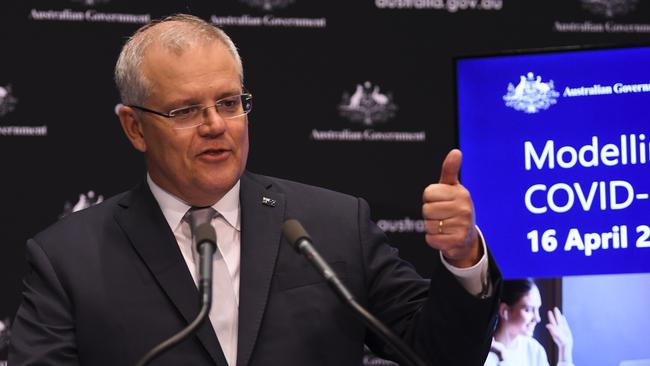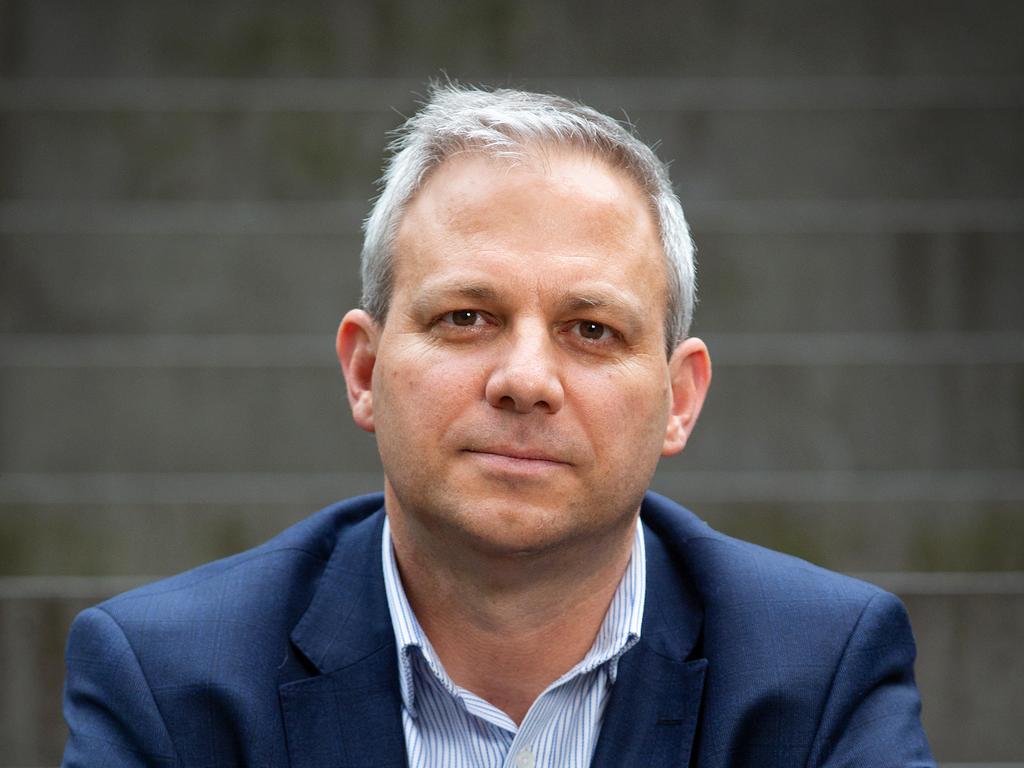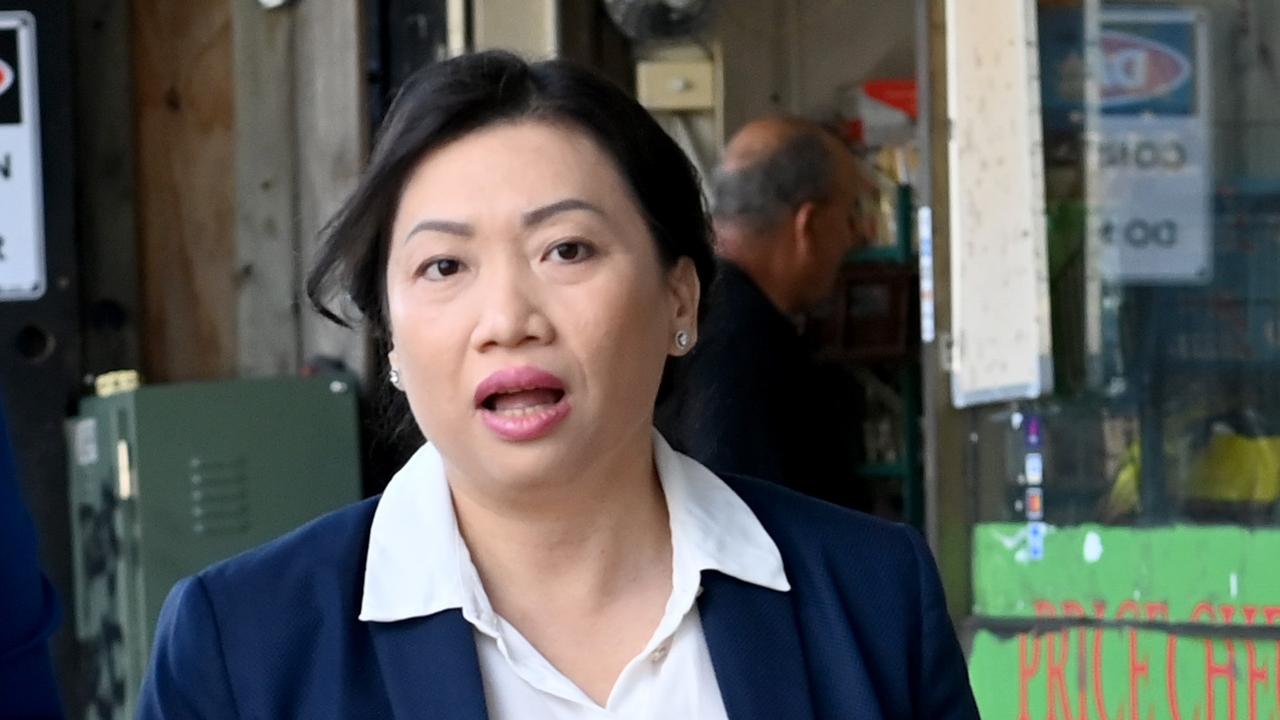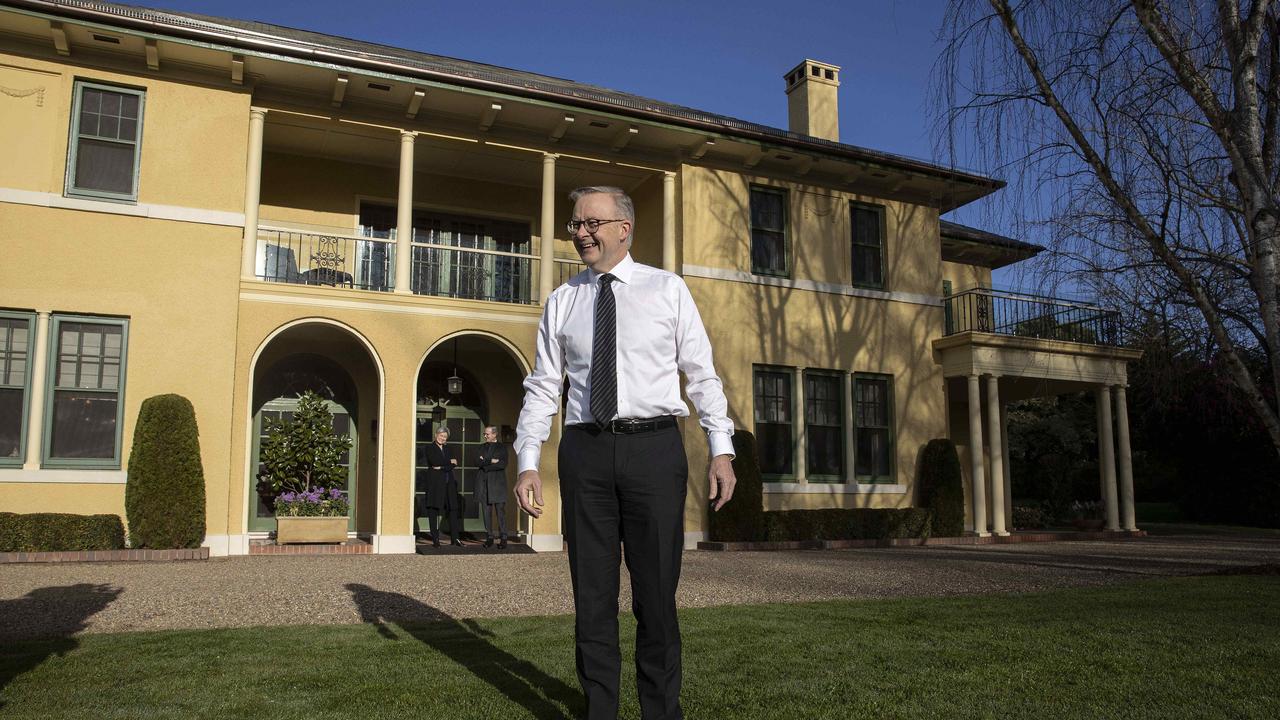Coronavirus: ‘Monumental’ task to hit target for tracking app
The government could struggle to meet one of its key targets for relaxing social-distancing restrictions and reigniting the economy.

The government could struggle to meet one of its key targets for relaxing social-distancing restrictions and reigniting the economy, with modelling showing that countries that had rolled out similar virus-tracking apps reached take-up rates by the public of no more than 25 per cent.
The modelling also warns that a prolonged delay to easing restrictions in Australia could lead to a rolling $40bn hit to the economy for every month they remain in place after May.
Scott Morrison on Friday implored Australians to download the COVID-19 contact-tracing app when it became available — as early as next week — claiming it was a matter of “national service” that could save lives and would be key to lifting restrictions.
The modelling of 17 countries to have already rolled out similar apps, conducted by leading global consultant Kearney, showed the most any country — including pioneer nations such as Singapore and Israel — had managed to achieve was 20-25 per cent take-up among smartphone users.
The Prime Minister announced this week the government was working on a contact-tracing app for mobile phone users that would allow health authorities alert Australians if they had come close to positive COVID-19 cases by using mobile phone Bluetooth data, which record digital “handshakes” with other phones.
The government has set a target of 40 per cent for the take-up as a benchmark for the broader easing of social-distancing and stay-at-home restrictions.
“The monumentality of this adoption target cannot be overlooked,” the Kearney report says.
“Analysis of existing technology-led virus-tracking apps similar to what has been announced in Australia shows that of the 17 global governments to have announced or implemented these apps, the success of national adoption has been elusive for a majority.
“It is critical Australians learn from these countries and aggressively drive up adoption.”
But it said Australia was well placed to get it right and achieve the 40 per cent target.
Kearney also modelled the effect of delayed easing of restrictions based on International Monetary Fund projections for Australia, warning of a $30bn to $40bn loss in economic activity every four to six weeks if the restrictions remain in place after next month.
With the economy already expected to contract by 6.7 per cent due to economic “hibernation”, the modelling shows this could potentially rise to Depression-era levels of 10 per cent or more unless social-distancing restrictions are gradually eased by the end of next month.
It comes as China — Australia’s biggest trading partner — posted a 6.8 per cent plunge in first-quarter GDP in its first economic contraction on record.
Mr Morrison warned Australians to brace themselves for the fallout of the coronavirus pandemic, with the economy likely to be hit by “a truck”.
“The GFC was an entree compared to what this is, this is on a whole other level,” Mr Morrison said. “On the economy we have some really bad news coming our way … this thing is going to hit like a truck.”
The Kearney report said the government would need to enlist private sector support in a marketing campaign that would need to address concerns over privacy and data storage to convince people to take up the app.
Anshuman Sengar, partner and global geo-analytics lead at Kearney, said concerns over privacy could be easily managed.
Better use of technology is viewed by authorities as critical to getting on top of the virus. But the government is sensitive to civil liberties implications and is working with the Privacy Commissioner.
Deputy Chief Medical Officer Paul Kelly said the app was a “really important” part of contact tracing and would help to keep Australia’s COVID-19 cases at a minimum.
He said the 40 per cent uptake was the government’s goal, but “the more the better, obviously”.
Mr Morrison said he wanted the system to be voluntary, declining to be drawn on mandatory tracking options. “I want to give Australians the opportunity to get it right. That’s my Plan A. And I really want Plan A to work,” the Prime Minister said.
Former federal cybersecurity chief Alastair MacGibbon said the government’s hopes for a 40 per cent uptake of the app in Australia were “ambitious”.
“I would love to see Australians get to it. But Facebook has over 60 per cent of the addressable market and that has taken years to achieve,” Mr MacGibbon said.
A new CEO survey overseen by economist Warren Hogan echoes the bleak outlook of the Kearney report, with business confidence plunging by 60 per cent. Only 14 per cent of CEOs expected an improvement over the year ahead, with most much more pessimistic. The survey was taken in the first two weeks of this month.







To join the conversation, please log in. Don't have an account? Register
Join the conversation, you are commenting as Logout